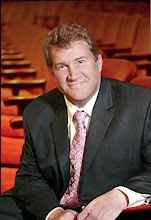
As a younger attorney, I got my clock cleaned by the National Advertising Division (NAD) of the Better Business Burea (BBB) in New York City when I unwittingly thought I understood the high standard by which they review ads on Madison Avenue. The NAD and its review panel of advertising executives are the folks who review ads to see if an advertising claim is substantiated by actual data or evidence. It was there I learned that what seemed logical to most of us needs to have actual documentation to establish its “truthiness.” One thing I learned was that just because the ingredients in a product are known to behave in a certain way, like absorbing odor, it isn’t a valid advertising claim unless you test the actual product that a consumer can purchase. Anything short of that is an “unsubstantiated claim.”
If a company whose ads are found false doesn’t take the warning of the NAD and change its ad copy, the case is referred to the Federal Trade Commission (FTC). In my experience, it’s always a good idea to listen to the NDA because the FTC has subpoena power and can show up with a warrant to seize your hard drive. Worse case is when an injunction is filed in a court of law and you have a few hours as a manufacturer to find the data files and appear in court, and a judge has the discretion to pull your product off the shelves without a chance to fully explain the situation.
In the case of Clorox’s Fresh Step Kitty Litter, it was a judge rather than the NAD or FTC who found the superiority claims of Clorox were unsubstantiated. Clorox failed to have statistically significant data to back up the claims. Many advertisers resor0t to puffery, such as “Papa John’s is the best pizza!” which is not really a superiority claim. To say a consumer “prefers” one pizza over another, the company would have to do a blinded study that had enough test subjects to create a statistically significant preference indication and keep that data on file during and after the ad was shown to the public. In case of Fresh Step, Clorox couldn’t do more than discuss the ingredients in the abstract and their use of glass jars to determine odor. It doesn’t appear that anydata using the Fresh Step product and its competitor was presented.
Here’s the news story from AP Wire:
A Manhattan judge ruled yesterday that Clorox, maker of Fresh Step cat litter, made “literally false” claims in its litter commercial when it said its product kills odor better than Arm & Hammer’s Super Scoop, a rival litter, made by Church & Dwight Co. (C & D). U.S. District Judge Jed S. Rakoff ordered Clorox to stop airing the ads, which began running in February 2011.
In his ruling, Judge Rakoff cites the “unrealistic conditions” of testing Clorox claims to have performed on the litter. The company claimed to have conducted a “jar test,” which it says proved carbon, rather than baking soda, better eliminated cat odor.
“The court agrees with C & D’s expert that it is highly implausible that eleven panelists would stick their noses in jars of excrement and report forty-four independent times that they smelled nothing unpleasant,” the judge said. The judge added that continuing to air the ads would cause “irreparable harm” to Church & Dwight.
A Clorox spokesman said the company is disappointed in Judge Rakoff’s ruling and plans to vigorously defend the matter, according to the Wall Street Journal.
In the case of Clorox’s Fresh Step Kitty Litter, it was a judge rather than the NAD or FTC who found the superiority claims of Clorox were unsubstantiated. Clorox failed to have statistically significant data to back up the claims. Many advertisers resor0t to puffery, such as “Papa John’s is the best pizza!” which is not really a superiority claim. To say a consumer “prefers” one pizza over another, the company would have to do a blinded study that had enough test subjects to create a statistically significant preference indication and keep that data on file during and after the ad was shown to the public. In case of Fresh Step, Clorox couldn’t do more than discuss the ingredients in the abstract and their use of glass jars to determine odor. It doesn’t appear that anydata using the Fresh Step product and its competitor was presented.
Here’s the news story from AP Wire:
A Manhattan judge ruled yesterday that Clorox, maker of Fresh Step cat litter, made “literally false” claims in its litter commercial when it said its product kills odor better than Arm & Hammer’s Super Scoop, a rival litter, made by Church & Dwight Co. (C & D). U.S. District Judge Jed S. Rakoff ordered Clorox to stop airing the ads, which began running in February 2011.
In his ruling, Judge Rakoff cites the “unrealistic conditions” of testing Clorox claims to have performed on the litter. The company claimed to have conducted a “jar test,” which it says proved carbon, rather than baking soda, better eliminated cat odor.
“The court agrees with C & D’s expert that it is highly implausible that eleven panelists would stick their noses in jars of excrement and report forty-four independent times that they smelled nothing unpleasant,” the judge said. The judge added that continuing to air the ads would cause “irreparable harm” to Church & Dwight.
A Clorox spokesman said the company is disappointed in Judge Rakoff’s ruling and plans to vigorously defend the matter, according to the Wall Street Journal.










